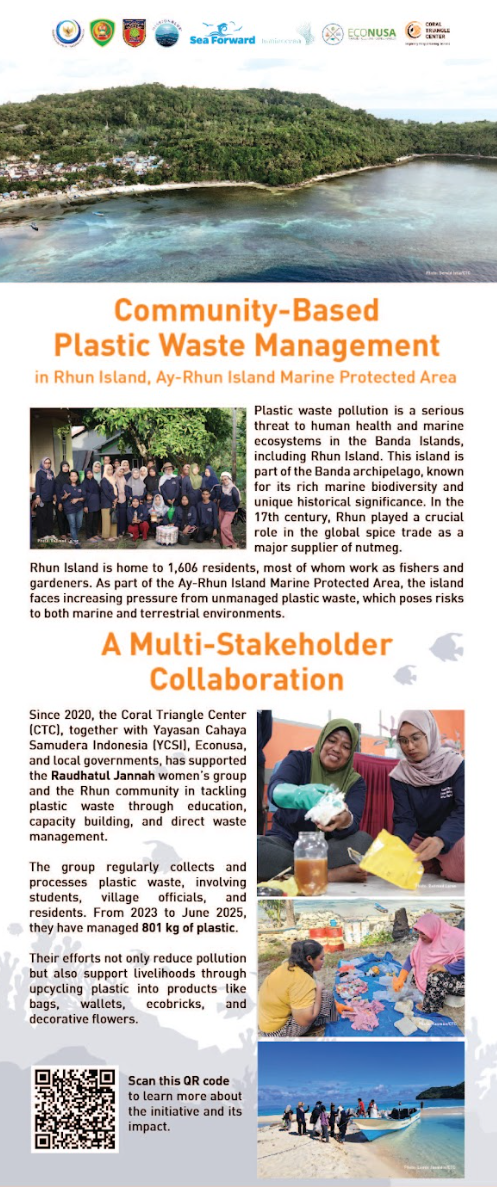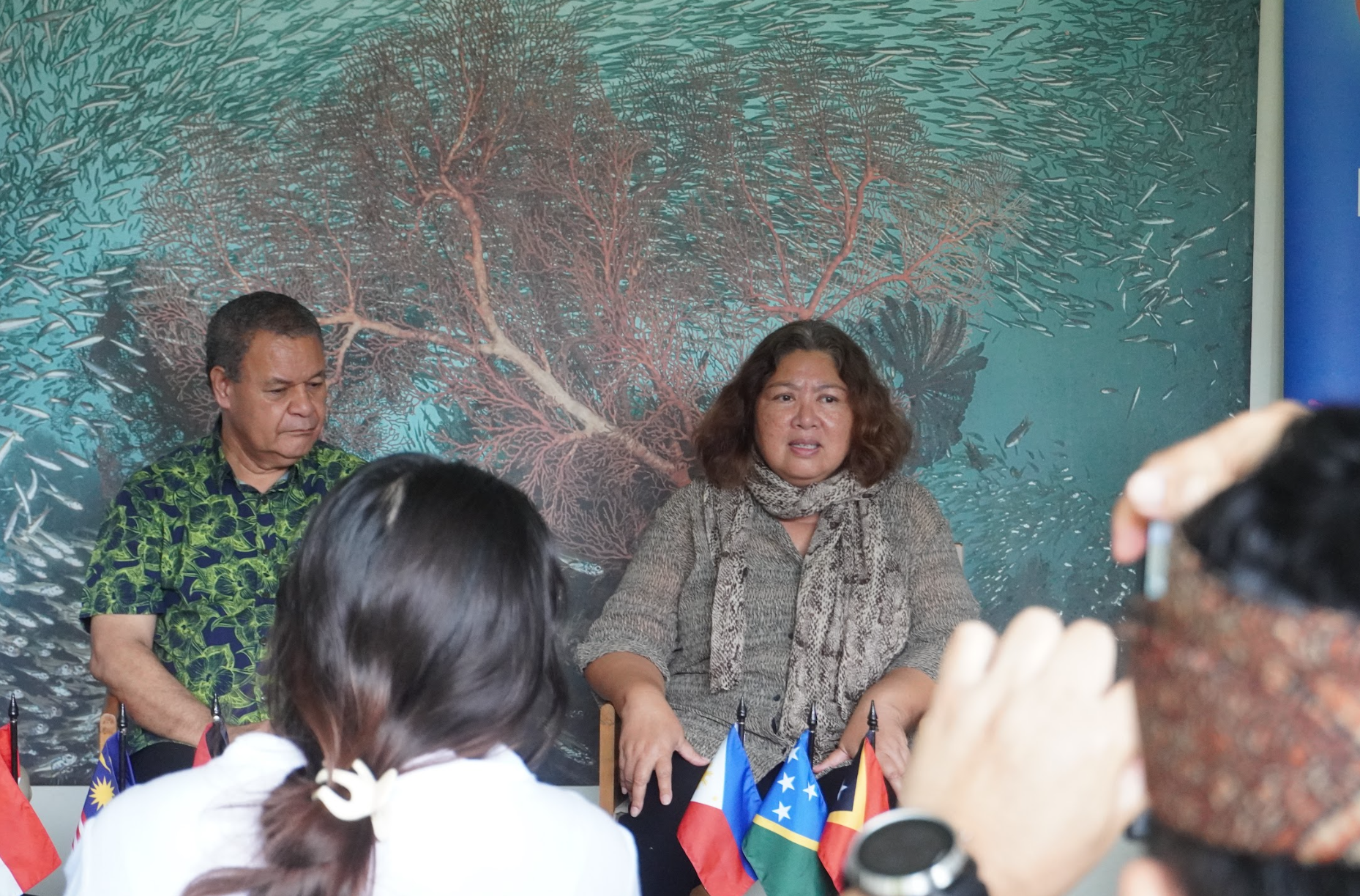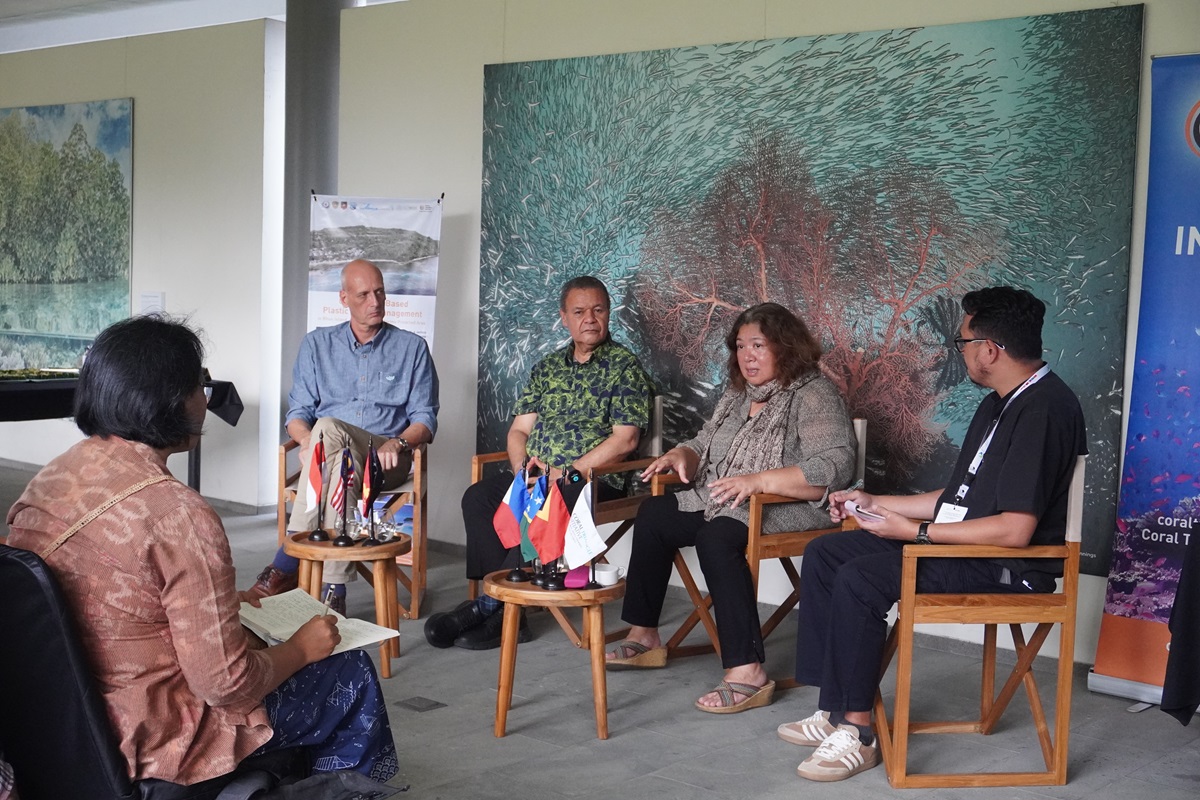28 Aug Coral Triangle Nations Convene for Pivotal Talks on Regional Strategy to Combat Marine Plastic Pollution
 Government officials, NGOs, and technical experts from across the Coral Triangle region gathered to develop a comprehensive regional strategy to address waste management issues in the world’s most biodiverse marine ecosystem, the Coral Triangle. The discussions focused on tackling the root causes of marine plastic pollution, which pose a growing threat to coral reefs, fisheries, and coastal communities.
Government officials, NGOs, and technical experts from across the Coral Triangle region gathered to develop a comprehensive regional strategy to address waste management issues in the world’s most biodiverse marine ecosystem, the Coral Triangle. The discussions focused on tackling the root causes of marine plastic pollution, which pose a growing threat to coral reefs, fisheries, and coastal communities.
Spanning Indonesia, Malaysia, Papua New Guinea, the Philippines, Solomon Islands, and Timor-Leste, the Coral Triangle is home to 76 percent of the world’s coral species. Yet the region also ranks among the highest contributors to global marine plastic pollution. With 13 million tonnes of plastic entering the oceans annually, a figure projected to nearly double by 2040, without action, the problem has become more urgent than ever.
 The meeting, held at the Coral Triangle Center’s Center for Marine Conservation in Sanur, Bali, was part of the Coral Triangle Initiative on Coral Reefs, Fisheries, and Food Security (CTI-CFF)’s Regional Plan of Action (RPOA) 2.0 in partnership with WWF. Its aim was to identify the key drivers of marine plastic pollution and explore pathways for stronger regional cooperation. “This meeting is the first step in what we hope will be a sustained, region-wide effort to tackle plastic pollution,” said Dr. Frank Keith Griffin, Executive Director of CTI-CFF.
The meeting, held at the Coral Triangle Center’s Center for Marine Conservation in Sanur, Bali, was part of the Coral Triangle Initiative on Coral Reefs, Fisheries, and Food Security (CTI-CFF)’s Regional Plan of Action (RPOA) 2.0 in partnership with WWF. Its aim was to identify the key drivers of marine plastic pollution and explore pathways for stronger regional cooperation. “This meeting is the first step in what we hope will be a sustained, region-wide effort to tackle plastic pollution,” said Dr. Frank Keith Griffin, Executive Director of CTI-CFF.
Discussions emphasized shifting from downstream waste management to upstream prevention, highlighting the need for systemic change. Research by WWF and CTI-CFF showed that mismanaged waste, insufficient infrastructure, weak policy frameworks, and unsustainable production models are major contributors to the crisis. Small islands and coastal communities face particular challenges, but studies indicate that transitioning from a linear to a circular economy could prevent between 2.2 and 5.9 million tonnes of plastic from entering the ocean annually from Coral Triangle nations alone.
 The regional strategy, still in its early stages, is being developed around four central themes: governance and policy strengthening, capacity building and technology transfer, funding and market access, and cross-sectoral collaboration. Key topics included phasing out harmful single-use plastics, adopting extended producer responsibility, strengthening waste management infrastructure, and creating platforms for community knowledge-sharing. “The diversity of challenges in the region demands solutions that are locally adapted and driven by community engagement,” said Klaas Jan Teule, WWF Coral Triangle Programme Leader.
The regional strategy, still in its early stages, is being developed around four central themes: governance and policy strengthening, capacity building and technology transfer, funding and market access, and cross-sectoral collaboration. Key topics included phasing out harmful single-use plastics, adopting extended producer responsibility, strengthening waste management infrastructure, and creating platforms for community knowledge-sharing. “The diversity of challenges in the region demands solutions that are locally adapted and driven by community engagement,” said Klaas Jan Teule, WWF Coral Triangle Programme Leader.
Case studies underscored the importance of community-led solutions. Examples included waste management programs in Indonesia’s marine protected areas and circular economy models in coastal communities in the Philippines. “These examples highlight the value of integrating waste management with local economic activities such as: community recycling centers; waste banks; tourism; and fisheries, while establishing sustainable financing models to ensure long-term success,” said Ms. Rili Djohani, CTC’s Executive Director. She emphasized that effective solutions must address the needs of local communities while strengthening the entire waste management value chain, from prevention and responsible disposal to recovery and reuse.
 While the meeting was focused on initial brainstorming, participants reached consensus on several next steps. The strategy will eventually be integrated into CTI-CFF’s RPOA 2.0 and a long-term, 10-year capacity-building roadmap. Implementation will prioritize support for coastal cities, tourism hubs, and marine protected areas vital to biodiversity conservation, contributing to the regional goal of protecting 30 percent of marine and coastal waters by 2030.
While the meeting was focused on initial brainstorming, participants reached consensus on several next steps. The strategy will eventually be integrated into CTI-CFF’s RPOA 2.0 and a long-term, 10-year capacity-building roadmap. Implementation will prioritize support for coastal cities, tourism hubs, and marine protected areas vital to biodiversity conservation, contributing to the regional goal of protecting 30 percent of marine and coastal waters by 2030.
 To further amplify the outcomes of the discussions, the three main organizers CTI-CFF, WWF, and CTC held a Media Briefing: Waste Management Kick-Off following the meeting. This session provided an opportunity to share key results with the press, highlight the importance of regional collaboration, and ensure that the wider public is informed and engaged in efforts to combat marine plastic pollution.
To further amplify the outcomes of the discussions, the three main organizers CTI-CFF, WWF, and CTC held a Media Briefing: Waste Management Kick-Off following the meeting. This session provided an opportunity to share key results with the press, highlight the importance of regional collaboration, and ensure that the wider public is informed and engaged in efforts to combat marine plastic pollution.
Writers: Asia Salsabilla, Gerald Wenur/CTI-CFF Regional Secretariat.
Photos: Gerald Wenur/CTI-CFF Regional Secretariat.







No Comments